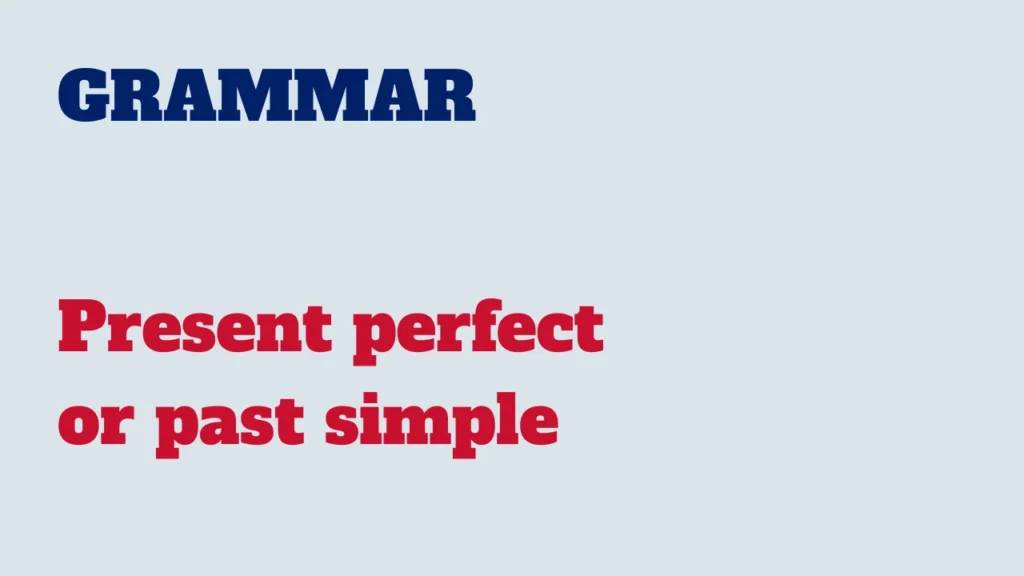Understanding when to use the present perfect simple and the past simple tenses is crucial for expressing actions in the past.

In this lesson, we will delve into the usage, structure, and common scenarios for both tenses.
Present perfect:
Usage:
Used for actions that started in the past and have a connection to the present.
Emphasizes the result or the current state resulting from a past action.
Structure:
Subject + have/has + Past participle
Examples:
I have visited Paris several times. (Connection to the present)
She has lived in this city for five years. (Current state resulting from past action)
They have already eaten lunch. (Emphasis on the result)
Common uses of present perfect:
Experiences in life:
“I have traveled to many countries.”
Actions that started in the past and continue to the present:
“She has worked here since 2010.”
Unspecified time in the past:
“Have you ever seen that movie?”
Past simple:
Usage:
Used for actions that happened at a specific time in the past.
Emphasizes the completion of a past action.
Structure:
Regular Verbs: Subject + Verb + –ed
Irregular Verbs: Subject + Irregular past form of the verb
Examples:
I visited Paris last summer. (Specific time in the past)
She lived in this city before. (Emphasis on past completion)
They ate lunch an hour ago. (Action completed in the past)
Common uses of past simple:
Actions with specific time references:
“I saw him yesterday.”
Completed actions in the past:
“He finished the project last week.”
Past habits or routines:
“She always walked to school.”
Common mistakes to avoid:
Incorrect use of present perfect for specific past actions:
Incorrect: “I have bought a new phone yesterday.”
Correct: “I bought a new phone yesterday.”
Using past simple for unfinished actions:
Incorrect: “She lived in London for ten years.”
Correct: “She has lived in London for ten years.”
Additional tips:
Signal words:
Present Perfect: already, yet, since, for, recently, so far, ever, never, just, etc.
Past Simple: yesterday, last week, in 2005, two days ago, etc.
Consider the context:
Choose the appropriate tense based on the context and the relationship between the past action and the present moment.
Understanding when to use the present perfect simple and the past simple will enhance your ability to convey past events accurately. Practice using these tenses in various contexts to strengthen your grasp of their usage. Happy learning!



